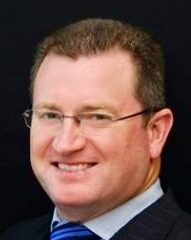iNO acknowledges it’s a longish bow but posits the question anyway. Is the tax office reducing its exposure to appointees from PwC due to the stink emanating from the global firm’s Australian tax practice?
This question occurred to iNO during the hearing in the Federal Court yesterday of an application for the winding up of One Asphalt (NSW) Pty Ltd (One Asphalt).
A Mills Oakley operative acting the Deputy Commissioner of Taxation (DCoT) told the court that her client wished to have heard its application for an order that the company be wound up.
This followed an appearance on August 1 where the court adjourned the hearing of the winding up application by consent of the parties.
One the other side of the proceedings were Andrew Scott and Bill Honner of PwC, who’d been appointed voluntary administrators (VAs) by One Asphalt’s director on July 31.
Minutes of the first meeting give no clue as to the attitude of the tax office in respect of the PwC pairs’ appointments after the date on which the DCoT commenced proceedings to have the company wound up.
All that’s said is that the Chairperson – Honner – asked if any of the creditors present had any questions.
“There were a small number of questions raised by the proxy holder for the Deputy Commissioner of Taxation, which were answered by the Chair,” the Minutes state without detailing the nature of the questions.
By the time the parties returned to court yesterday Scott and Honner had achieved a lot, including preparing their second report to creditors, commencing recovery processes against a former director and a relative of that director and trading the business whilst issuing invoices to the company’s two main clients including Burwood City Council.
Lawyer Hugh Smith of Chamberlains who appeared for the VAs argued that if the company was to be wound up then Scott and Honner should be appointed liquidators.
They had after all swiftly gained an understanding of the company’s affairs and the limited funds available to support any potential distribution to creditors – some $142,000 at bank – mitigated against the duplication of work that would be unavoidable if the court appointed someone else.
It certainly sounded reasonable but the DCoT wasn’t interested.
Its lawyer argued that as the director had not provided a RoCAP and that work already done by the VAs doesn’t offset the right of the applicant to have appointed its preferred nominee the DCoT believed a fresh set of eyes was required and insisted Ian Niccol of Aston Chace be appointed.
Accepting it was customary for the court to appoint the applicant’s nominee the Registrar made the orders without questioning why the DCoT thought that the PwC pair weren’t suitable to act as the company’s liquidators.
Only time will tell if the DCoT’s preferencing of a new practitioner ahead of two highly regarded and incumbent appointees represents a one-off or a trend designed to reduce the Commonwealth’s association with a brand so far beyond the sniff test that it’s barely breathable.



Be the first to comment on "Has tax miasma spread to PwC restructuring?"